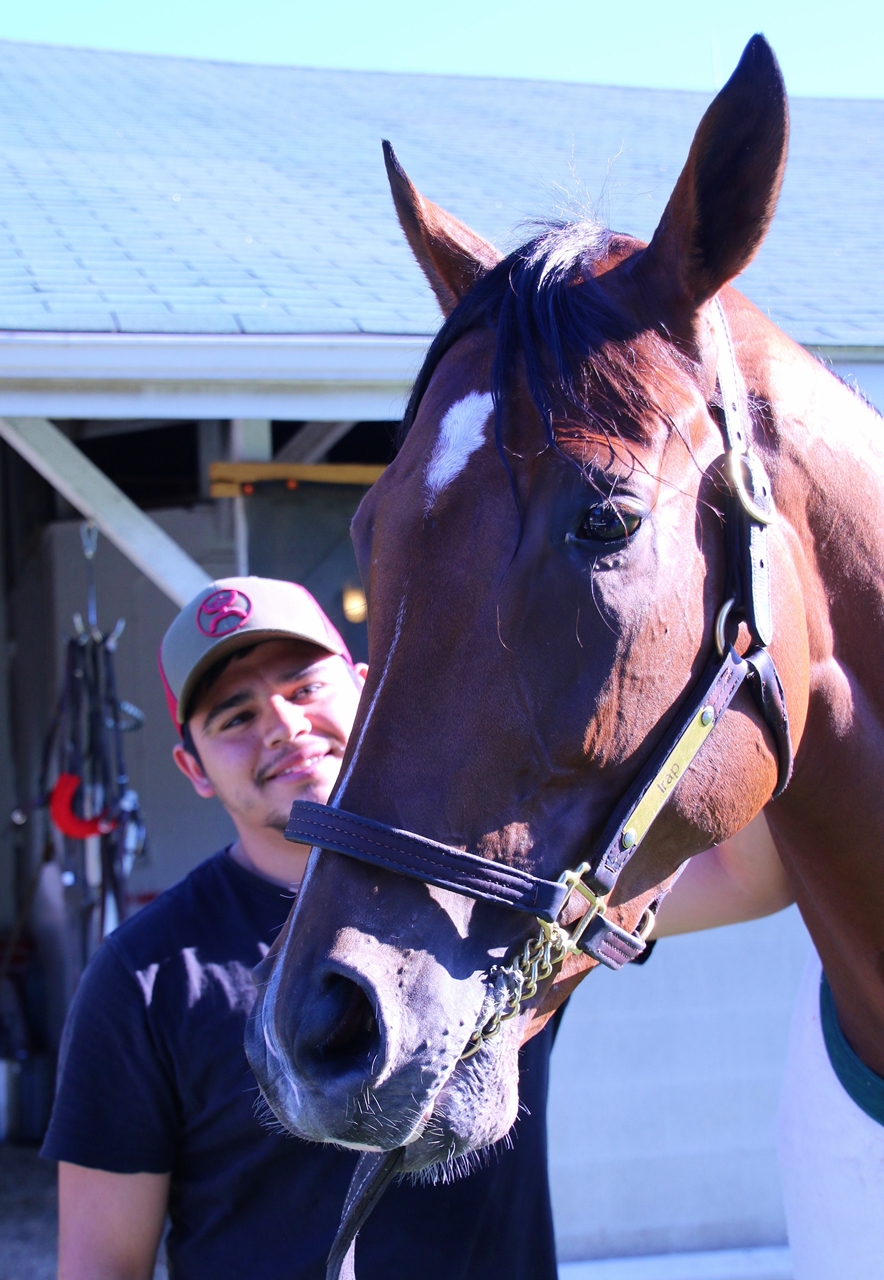
Once the serum has been harvested, it is filtered and then frozen in single dose aliquots. This yields 5-6 doses of IRAP, but the number of doses available for use from each collection is dependent on the specific joint. The amount of serum collected from each 50ml syringe of blood is usually between 20-25ml. The syringe must reach the incubator as soon as possible after the blood has been harvested from your horse.Īfter 24 hours, the syringe is centrifuged, and the serum collected. The syringe contains glass beads coated with a substance to enhance production of anti-inflammatory proteins including IRAP.

Levels of IRAP and other anti-inflammatory proteins in the blood can be increased and produced for joint injection by incubating a 50ml sample of blood from your horse for 24 hours in a special syringe. It prevents IL-1 from binding to IL-1 receptors on tissues within the joint, and therefore blocks the action of and stops the damage caused by IL-1 in the joint. IRAP was developed to counteract the inflammatory protein interleukin-1 that is produced in the joint during synovitis and to slow the progression of OA. IRAP (Interleukin-1 Receptor Antagonist Protein) is an anti-inflammatory protein that counteracts the destructive effects of inflammatory proteins such as Interleukin-1 (IL-1) within the inflamed joint. Osteoarthritis has a major economic impact on the horse industry and dictates the level of performance for many horses and their riders. Osteoarthritis is one of the most common causes of lameness in horses. Equine athletes are susceptible to musculoskeletal injuries and osteoarthritis (OA), also known as degenerative joint disease (DJD). IRAP Anti-Inflammatory ProteinĪ novel therapy called IRAP®, Interleukin-1 Receptor Antagonist Protein, is now available and showing promising results for the treatment of osteoarthritis in horses. These are limited examples, and many additional scenarios exist.Ĭome visit us at Equine Veterinary Services and let us assist you in assessing whether IRAP therapy may be indicated for your horse.IRAP (Interleukin-1 Receptor Antagonist Protein) is an anti-inflammatory protein that counteracts the destructive effects of inflammatory proteins. There are many ideal situations for its use such as a young performance horse that is showing signs of soreness in a joint, or any age horse that incurs a joint injury. The length of efficacy for IRAP has not been determined in the scientific literature, but anecdotal data suggests some horses may need retreatment every 6 months, while some horses go for years without the need for another treatment. Any remaining doses can be stored in the clinic freezer and be used at a later date. The serum is passed through a filter, and is then ready to be injected into the affected joint.įortunately, one sample often yields 4-6 doses of IRAP, and the standard treatment protocol is one dose (injection) per week for 4 weeks. After incubation, the sample is put in a centrifuge and spun down so that the serum with IRAP concentrated in it can be separated.


The coating on the glass beads inside the syringe intensifies this process and allows the IRAP concentration to multiply to a high degree within the sample. This syringe is then put in an incubator for 24 of more hours to allow IRAP production. Approximately 60 milliliters of blood is carefully taken from the jugular vein of the patient in a special syringe with coated glass beads inside. The process by which it is harvested is simple. One common misconception about IRAP is that it regenerates tissue this is the job of stem cells, and even though IRAP is often grouped with stem cells in the regenerative medicine category, it is more like a ‘self-protecting agent’ it simply amplifies protective proteins already made by the body. The IRAP protein stops the action of Interleukin-1 and thus stops the inflammatory cascade that send our athletic horses in to a no show, non-productive stage due to the degenerative joint problems that are created as a result. IRAP Therapy is Interleukin-1 Receptor Antagonist Protein, also known generically as autologous conditioned serum (ACS).When a horse has arthritis or suffers an injury, inflammation is rampant within the affected joint, and the inflammation itself begins to become the problem by degrading surrounding tissues such as joint cartilage. Horse owners today have very little knowledge about IRAP and even less of an understanding of that this medical treatment is all about. Jennifer Wickline, DVMĪ relatively new therapy in the management of equine arthritis is IRAP Therapy.


 0 kommentar(er)
0 kommentar(er)
